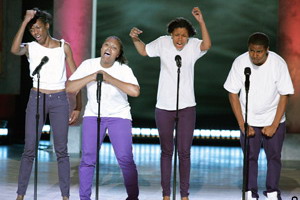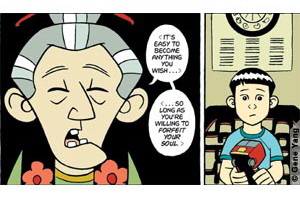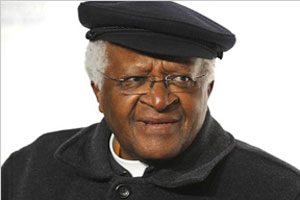Focus on America
Poetry Slams Build Confidence, Promote Free Speech

Slam poetry, part of a tradition of spoken performance in the United States, is driven by poets of diverse backgrounds who see it as a tool of free expression.
Poetry Slams Build Confidence, Promote Free Speech
Young poets use own writing to shape public opinion
By Carolee Walker
Staff Writer
Washington — It isn’t just writing poetry or performing that is life-changing for one young slam poet. “It is the visceral feeling you get when you hear someone on stage tell their story,” says Josh Bennett, a three-time slam poetry champion.
“The voices we don’t hear in other spaces in society are the voices that are ever-present in this art form,” Bennett said. And there is room for these voices in a democracy, said first lady Michelle Obama at a May 12 White House poetry jam. “Democracy … has room for lots of voices,” Mrs. Obama said. (See “White House Hosts Evening of Poetry and Music.”)
More than 250,000 people between the ages of 13 and 24 participate in Youth Speaks poetry-writing and spoken-word programs and competitions throughout the United States. Brave New Voices, the annual Youth Speaks teen poetry slam championship, features 500 slam champions from 50 cities in the United States and from England and Trinidad and Tobago. Youth Speaks, the leading spoken word organization in the United States, offers after-school writing workshops at no cost to participants, who work with trained mentors and coaches. Some of the coaches are Brave New Voices champions and others are teachers, cultural activists and poets.
During a poetry slam, poets perform three-minute original writings that are scored by a panel of judges based on the quality and content of the writing and the performance. Performers are not required to memorize their poems, and the audience is encouraged to shout out comments. (See “Young Belarusian Poets Impress at First English Language Slam.”)
For example, President Obama hosted Bennett along with Brave New Voices champion Jamaica Osorio at the White House poetry jam. There, Bennett performed a poem about his older sister, who was born deaf; Osorio’s poem expressed a longing to know her family’s traditional Hawaiian names. The power of words, President Obama said, “helps us appreciate beauty, but also to understand pain.” The content of slam poems is often personal, said Hodari Davis, national program director of Youth Speaks.
“Free speech is the staple of our work,” Davis said. “We create a safe place for young people to express themselves — we don’t censure them.” Coaches and mentors help poets refine their writing, and since the focus of the competitions is to “move the crowd,” Davis said, the competition element drives the participants to make their poems better, more honest.
“My first poems were full of metaphors,” said Katri Foster, 23, a student at San Francisco State University and a Brave New Voices champion and coach. “Then I realized it was easier to be honest.” As Foster watched the slams, she said, it became apparent that “if I wanted to connect with people, then I had to be honest.” Foster began participating in the workshops as a shy and reserved 14-year-old. “My first time on stage, I looked at the ground and was hardly audible,” she said.
As poets become more comfortable with the spoken word, they often write about “breakthrough moments,” such as how traumatic events in their lives have shaped them as individuals, Kass said.
“The beauty of slam poetry is that you are showcasing a performance and your writing at the same time,” said Brave New Voices slam champion George Watsky, 22, a student at Emerson College. Although stand-up comedy and one-person shows offer this kind of performance opportunity for adults, Watsky said, nowhere is the energy of the performance so acceptable for young people as it is in slam poetry. “Your voice is crucial to the conception of the work, but so is your performance,” he said.
Many slam poets, including Chinaka Hodge, 24, who started writing poetry with Youth Speaks when she was 14, are encouraged to write poems by hand in notebooks. “My first poem came out of a ‘write on the spot’ exercise and I wrote about what the dark felt like,” said Hodge, who has a degree from New York University and now works for Youth Speaks. “From that moment, I was hooked — the writing workshop became a safe space to tell the truth.”
Kesed, 23, a member of the Brave New Voices Green Team and a regular performer at open microphone nights in Brooklyn, New York, often writes about nature. Kesed said that for as long as he can remember, he was writing, but he found his creative release in the spoken word. Kesed said that when he begins the process of writing, he tries not to think: “First, I’ll write from the heart and then I’ll go back over what I’ve written and use my mind to edit.”
Watch the Brave New Voices champions perform on the HBO Web site. Additional information about Youth Speaks and Brave New Voices Speak Green is available on the Youth Speaks and Sundance Institute Web sites.
Recently on Focus on America
Graphic novels - Drawing the Asian-American Experience
 Asian-American artists and writers have attained considerable prominence as creators of sophisticated graphic novels, many of which explore cultural identity and social issues.
Asian-American artists and writers have attained considerable prominence as creators of sophisticated graphic novels, many of which explore cultural identity and social issues.
Americans May Be Thinking About Identity in New Ways
 Most scholars, writers, politicians and others agree that with the possible exception of the American Indian, to be American is to be, genealogically speaking, from somewhere else in the world. America.gov explores how choosing individual identity is an ever-shifting process.
Most scholars, writers, politicians and others agree that with the possible exception of the American Indian, to be American is to be, genealogically speaking, from somewhere else in the world. America.gov explores how choosing individual identity is an ever-shifting process.
Desmond Tutu Awarded 2008 U.S. Fulbright Prize
 If peace and understanding could be human, then South African Archbishop Emeritus Desmond Tutu would be one of the best examples of these concepts because few have worked harder for them, often in the face of insurmountable odds.
If peace and understanding could be human, then South African Archbishop Emeritus Desmond Tutu would be one of the best examples of these concepts because few have worked harder for them, often in the face of insurmountable odds.